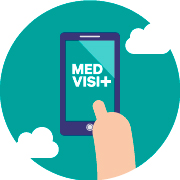
Find out about COVID-19 vaccines in the EU.
What are the vaccinations for COVID, and does being vaccinated mean you won’t get the disease? Can you still infect your family? Surely you have many uncertainties about COVID-19 and vaccination. That’s why our doctors in Barcelona have gathered in this article the main questions and answers about vaccines to solve all your doubts. Take note!
What vaccines are in force in the EU?
Let’s start with the basics: which drugs can you be inoculated within the European territory? There are currently four that are being supplied:
AstraZeneca.
BioNTech and Pfizer.
Moderna.
Janssen.
All these vaccines require two doses except the last one. Remember that, between doses, different dates must pass between one vaccine and another. From 3 weeks for Pfizer to 4 weeks for Moderna, or three months for AstraZeneca.
However, these are not the only ones that exist. Other drugs such as the promising Novavax or Sputnik V are also being reviewed.
Are all these vaccines free of charge?
Yes, they are. You won’t have to pay for them separately or anything like that, the public health system of each European country is in charge of providing them free of charge to each citizen.
Are the vaccines safe?
I’m sure you have asked yourself this question more than once, like so many other people. Yes, vaccines are totally safe. However, the EMA has authorized some drugs depending on the age range of the patient. For example, Pfizer can give it to anyone, as can Moderna.
However, Janssen’s vaccine is not recommended for those under 40 years of age. Nor is AstraZeneca’s vaccine. The reason? In very specific cases, they can be associated with diseases or problems (mostly cardiac) that pose a health risk. Thus, in the case of the AstraZeneca vaccine, the thrombi that it generated in patients of all ages were well known. Although they were very residual, they were much publicized in the press.
In any case, today enough is known so that no problems or complications are generated in those who are inoculated with the serum. If you have any questions, our English-speaking doctors (if you are more comfortable with the language) will answer them for you.
What are the possible side effects of the vaccines?
Generally, apart from the pain in the arm, a little tiredness, perhaps fever and general malaise. Especially after the second dose in the case of Pfizer and Moderna and after the first dose in the case of AstraZeneca. However, these symptoms disappear within a few days. In many cases it is like passing the disease in a very weak and residual form.
And how effective are they?
This is a good question, because it is complex. You may remember that, towards the beginning, when the drugs were approved, they started to talk about an effectiveness of almost 90% in many of them. However, these were laboratory conditions. And conditions, moreover, in which more aggressive strains, such as the current ones (in the case of delta or alpha) did not prevail. Therefore, this effectiveness has dropped a few points, but not that many.
Consequently, the exact percentage is still not clear, although it is known that in practically all of them the effectiveness is around 80% (with the complete pattern). Therefore, this should not be a cause for concern for you. Not only are they safe, they also work, and work very well.
Can a vaccinated person catch the virus?
Yes, they can. There is a false belief that vaccinated people do not get it, but this is not true. The virus can enter your body. However, your immune system has information on how to activate its defenses to slow its advance and drastically reduce the most severe symptoms and, therefore, the possibility of mortality from the virus.
Therefore, the most severe forms of the virus will be covered, and you will be protected against its maximum virulence.
And does it transmit it?
This is something that, with the information we have today, we can neither confirm nor deny. It is not yet known. In MedVisit we have seen studies that point to the idea that, having much less viral load, a vaccinated person transmits much less of the virus. But there is still no scientific evidence.
When do you get vaccinated?
It depends on each area of the European Union and even on each region of each country. In the case of Spain, the communities have opened self-citation according to age groups, but the same criteria do not always prevail. In any case, this is something that the public health service is responsible for informing you about. Therefore, we recommend that you pay attention to the press to find out when you can make an appointment, if you have not yet been vaccinated.
Now that you know what the vaccinations against COVID are, there is one thing to keep in mind: information is constantly changing and being updated. So, it never hurts to keep researching the topic and stay up to date on any news about the vaccines. If you have any questions about a vaccine, do not hesitate to contact us, at MedVisit we are here to help you anytime, anywhere.

